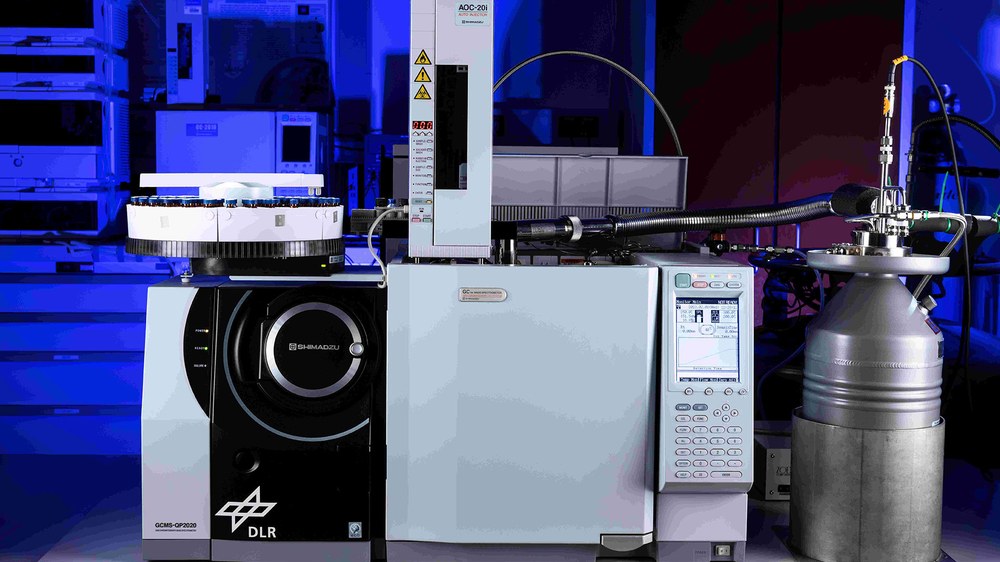Chemical Analysis

By characterising fuels in terms of their chemical composition and thermophysical properties, the Chemical Kinetics and Analytics department creates the basis for investigating the influence of fuel composition on combustion and emission behaviour.
Analysing liquid synthetic chemical carriers poses a particular challenge, as their chemical composition often differs greatly from conventional fuels.
For this purpose, the department has a modern two-dimensional gas chromatograph (GCxGC) with coupled mass spectrometer and flame ionisation detector at its disposal, which enables the separation of even complex fuel matrices thanks to the modulated series connection of two chromatography columns. This analysis is supported by 1H nuclear magnetic resonance spectroscopy (NMR), which enables precise determination of the hydrogen content of fuels. In this way, fuel samples can be qualified and quantified down to the molecule as accurately as possible, and the mass fractions of the individual chemical groups, the average molecular formula and the C/H ratio can be determined.
In addition, decisive thermophysical parameters can be determined. These include distillation properties (e.g. start of boiling, boiling curve, end of boiling), vapour pressure curves, kinematic viscosity and density (including low-temperature behaviour down to -47°C), freezing point, oxidation stability, surface tension, refractive index and calorific value of the fuels under consideration. In aviation in particular, the low-temperature properties are of great importance and safety relevance.
The existing analytical methods therefore go far beyond the requirements stipulated in the relevant standards (e.g. ASTM or DIN) and provide individualised validation data for model-based optimisation processes. The precise characterisation of a fuel also forms the basis for the scientific interpretation of its combustion and emission behaviour, as well as for the selection of suitable models for predicting the reaction kinetics and pollutant formation of combustion.
